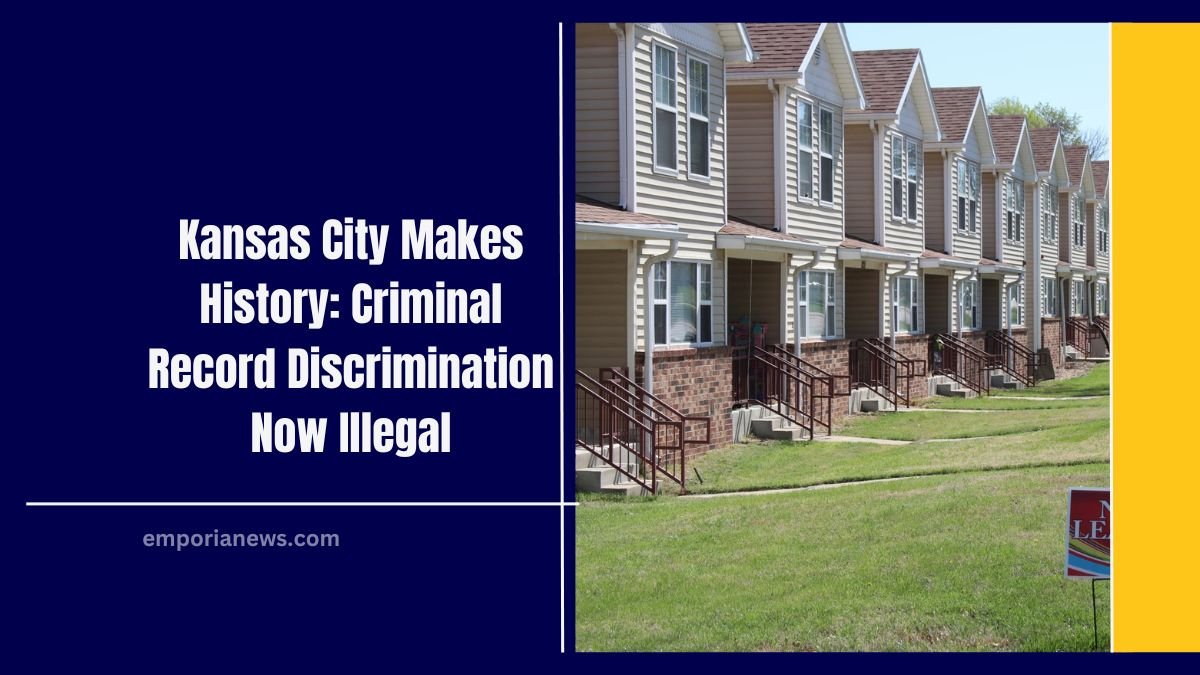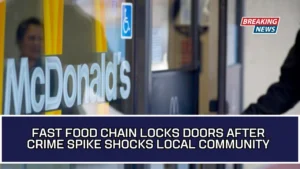Kansas City has taken a monumental step toward equity and inclusion by passing an ordinance that makes it illegal to discriminate against individuals with criminal records.
This groundbreaking move adds formerly incarcerated individuals to the city’s list of protected classes, safeguarding their rights in employment, housing, and business opportunities.
The decision highlights Kansas City’s commitment to breaking down barriers for those who have paid their debt to society and offering them a fair shot at rebuilding their lives.
This article explores the details of this ordinance, its potential impact, and why it’s a significant milestone in criminal justice reform.
What Does the Ordinance Do?
Kansas City Council’s ordinance prohibits discrimination against individuals with criminal records in the following areas:
- Employment: Employers can no longer deny someone a job solely based on their criminal background.
- Housing: Landlords cannot reject potential tenants due to their criminal history.
- Business Transactions: Discrimination in business dealings, including partnerships and services, is also prohibited.
This measure builds upon the 2018 “ban the box” initiative, which prevented landlords and employers from asking about criminal history on applications.
However, advocates noted gaps in the previous law, as landlords and employers could still perform background checks and deny opportunities.
Why Was This Ordinance Passed?
The ordinance aims to address the long-term challenges faced by formerly incarcerated individuals, including:
- Systemic Barriers: Many individuals with criminal records struggle to secure housing and jobs due to stigma and discrimination.
- Economic Disparity: Discrimination exacerbates inequality, disproportionately affecting marginalized communities.
- Rehabilitation and Reintegration: The measure emphasizes that individuals who have served their sentences deserve a chance to reintegrate into society.
Councilmember Melissa Robinson, who sponsored the ordinance, stated, “Once you’re held accountable for your actions and you’ve paid your debt to society, your sentence should not be a lifetime of shame, shunning, and severe debilitation.”
How Does This Compare to Other Cities and States?
Kansas City joins Atlanta as one of the few major cities where formerly incarcerated individuals are recognized as a protected class. States like Wisconsin and Illinois have partial protections, but Kansas City’s approach is more comprehensive.
| Feature | Description |
|---|---|
| Scope of Protection | Employment, housing, business transactions |
| Existing Initiatives Enhanced | Builds on the 2018 “ban the box” initiative |
| Inspired By | Similar ordinance in Atlanta |
| Voting Outcome | Passed with a 9-3 majority |
| Target Population | Formerly incarcerated individuals |
| Next Steps | Advocates push for automatic record expungements |
Challenges and Criticisms
Not all council members supported the ordinance. The measure passed with a 9-3 vote, with dissenting members citing concerns about vagueness and potential challenges for small businesses.
Councilmember Kevin O’Neill argued that the ordinance should have waited until after the city’s budget was finalized. However, supporters emphasized that delaying the measure could prolong systemic inequities.
Broader Implications
This ordinance represents a significant shift in how Kansas City addresses systemic barriers faced by formerly incarcerated individuals. By prioritizing equity, the city hopes to achieve:
- Economic Empowerment: Opening doors to stable jobs and housing reduces recidivism and fosters economic growth.
- Social Justice: The ordinance aligns with broader movements to address racial and economic disparities in the criminal justice system.
- Community Reintegration: Supporting formerly incarcerated individuals benefits families and communities by reducing cycles of poverty and crime.
Future Goals: Automatic Record Expungements
The passage of this ordinance is just the beginning. Advocacy groups like MORE2 (Metro Organization for Racial and Economic Equity) are now pushing for automatic record expungements.
Rev. Thomas James, a lead organizer, highlighted the challenges individuals face even after expungement. For instance, background checks often reveal a “criminal record expunged” status, perpetuating stigma.
James and other advocates aim to shift the narrative around formerly incarcerated individuals, emphasizing their potential to contribute to society.
He noted, “One in three adults in the United States has some sort of criminal record. Surely we don’t want to bar one-third of our country from participating in the American Dream.”
Kansas City’s decision to make discrimination against individuals with criminal records illegal is a bold step toward equity and inclusion.
By recognizing formerly incarcerated people as a protected class, the city aims to break down systemic barriers and offer second chances to those who have paid their debt to society.
This ordinance not only aligns with Kansas City’s broader goals of social justice but also sets a powerful example for other cities to follow.
As advocacy groups continue to push for reforms like automatic record expungements, the city is poised to lead the charge in creating a more equitable future for all its residents.




